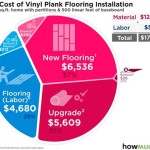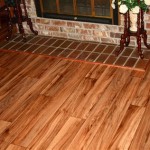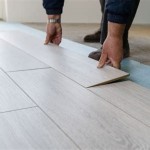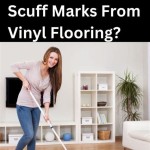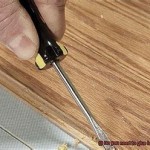Is Luxury Vinyl Flooring Safe? Essential Aspects to Consider
Luxury vinyl flooring (LVF) has gained immense popularity in recent years due to its durability, affordability, and realistic appearance. However, homeowners often wonder about its safety, particularly in terms of health and environmental concerns. This article explores the essential aspects of LVF safety, providing insights to help you make informed decisions.
Chemical Composition and Emissions
LVF is primarily composed of polyvinyl chloride (PVC), a synthetic material that has been used in various applications for decades. Some concerns have been raised regarding the potential release of volatile organic compounds (VOCs) from PVC. However, reputable LVF manufacturers adhere to strict emission standards, resulting in products that emit minimal VOCs. These levels typically fall well below industry thresholds and are considered safe for indoor use.
Phthalates and Health
Phthalates are a group of chemicals commonly used as plasticizers in PVC. Certain phthalates have been linked to health issues, such as reproductive and developmental disorders in children. However, many LVF manufacturers have phased out the use of harmful phthalates in their products. By opting for phthalate-free LVF, consumers can minimize potential health risks associated with these chemicals.
Durability and Maintenance
LVF is known for its exceptional durability and longevity. Its protective top layer resists scratches, stains, and wear, making it suitable for high-traffic areas. Proper maintenance is crucial to preserving its safety. Regular cleaning with a damp mop and avoiding harsh chemicals or abrasive cleaners ensure optimal performance and minimize any potential health hazards related to dirt or bacteria buildup.
Environmental Impact
The environmental impact of LVF varies depending on factors such as production methods and material sourcing. Some manufacturers have adopted sustainable practices to reduce the environmental footprint of their products. These include utilizing recycled materials, reducing waste, and implementing energy-efficient manufacturing processes. By choosing eco-friendly LVF options, homeowners can contribute to a more sustainable and environmentally conscious home.
Conclusion
Luxury vinyl flooring is generally considered safe for residential and commercial use when sourced from reputable manufacturers that adhere to industry standards. Low VOC emissions, minimal phthalates, exceptional durability, easy maintenance, and sustainable options make LVF a viable flooring choice. To ensure safety, opt for low-emission products, follow proper installation and maintenance guidelines, and choose eco-friendly options whenever possible. By considering these essential aspects, homeowners can enjoy the beauty and practicality of LVF while minimizing potential health and environmental concerns.

The Dangers Of Luxury Vinyl Floors Lvt And How You Can Avoid Them Artisan Wood Llc

Vinyl Flooring Pros And Cons Forbes Home

The Dangers Of Luxury Vinyl Floors Lvt And How You Can Avoid Them Artisan Wood Llc

What I Ve Learned As An Inspector For Luxury Vinyl Flooring Wood Floor Business

Safe And Stylish Luxury Vinyl Flooring For Underfloor Heating Direct Blog

6 Vinyl Flooring Myths Get The Facts From Our Experts Inc

Is Vinyl Flooring Good For Commercial Use

Exploring The Safety Features Of Luxury Vinyl Flooring Slip And Fire Resistance

What I Ve Learned As An Inspector For Luxury Vinyl Flooring Wood Floor Business

Toxin Free Luxury Vinyl Plank Flooring Healthy House On The Block
Related Posts


